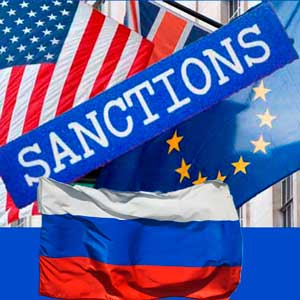Finance Ministry accuses West of creating cartel mechanism in diamond market
For the first time in history, the Kimberley Process member countries failed to agree on a final communiqué at a plenary session, as the G7 and EU countries tried to include restrictions on diamond supplies from RUSSIA in the package of decisions. However, participants outside the Western bloc did not support these initiatives. Deputy Finance Minister Alexey Moiseyev told journalists about this.
According to him, the G7 and the EU are trying to create a cartel structure parallel to the Kimberley Process (KP). "We are currently seeing a goal set to create a sustainable sanctions mechanism, a conditional KP-2 cartel, to close the markets for consumption of jewelry and diamond products for politically undesirable countries and companies," he said. This is about the initiative of Western countries to introduce a direct ban on the import of Russian rough diamonds to the markets of these countries. Technically, this could be formalized through the introduction of a diamond certification mechanism only through the AWDC or GIA diamond centers located in Belgium and the United States , the deputy minister said.
According to him, the artificial restriction on diamond supplies from Russia cannot be compensated for from other sources. This may initially cause a short-term rush demand for diamonds from the remaining producers, which will be followed by a sharp decline in supply and a collapse in the cost of diamonds against the background of the replacement of natural stones with more affordable synthetics. This will clearly provoke a policy of price competition insurvival and, as a result, the frankly vulnerable position of all participants in the natural stone market, warned Moiseyev. "Responsible participants in the industry from mining to cutting and manufacturing jewelry in a very short time risk losing their business , and diamond-mining countries in Africa - a vital industry for the socio-economic development of entire regions, ensuring the well-being of local communities in the mining regions," said the deputy minister.
Among the issues in the final communiqué that was not adopted were also "substantive," Moiseyev noted. Among them were the launch of the permanent Kimberley Process Secretariat in Botswana, discussion of practical steps to implement the "Declaration on Supporting the Principles of Responsible Diamond Supply Chains as Best Practices," lifting the embargo on diamond exports from the Central African Republic, and electing Belarus as vice-chair of the process for 2024. "By the end of the year, we will try to find a way to approve the decisions approved by the KP participants by consensus during the plenary meeting in Zimbabwe," Moiseyev assured.
The Kimberley Process is a permanent intergovernmental conference aimed at eliminating “blood diamonds” — those that are mined illegally and finance terrorism and anti-government armed conflicts — from international trade channels. In 2023, Zimbabwe was the chair of the conference, and in 2024, the UAE will take over. The Kimberley Process meeting was held from 6 to 11 November.
On the eve of the meeting, in his letter to the Kimberley Process participants, Moiseyev warned that sanctions against diamond supplies from Russia would lead to a disruption of competition in the global market and could hit vulnerable groups in countries with diamond industries.
RBC Pro Development Program Leadership: The First Skill New Leadership: How to Manage a Business in an Uncertain Environment The Power of the Environment: How a Leader Can Grow Together with the Team A Dictator's Dictionary: 6 Phrases That Give Away an Authoritarian Manager Psychology in Business: 6 Types of Destructive Leadership A Leader Whom People Don't Leave: How to Earn the Loyalty of Their Subordinates Growing the Pie. How Great Companies Achieve Goals and Make a ProfitRead together with it:
- О самых распространенных причинах пожаров рассказали в МЧС2 октября, Минск. О самых распространенных причинах пожаров рассказал начальник главного управления надзора и профилактики МЧС Дмитрий Турчин на "Предупреждение чрезвычайных ситуаций в осенне-зимний период. Профилактика пожаров и гибели людей от них", которая прошла в БЕЛТА. "В республике наблюдается рост количества пожаров на 7,7%, и на 1......
- Роспотребнадзор приостановил работу воронежского мясокомбината из-за серьезных санитарных нарушенийОбнаружено, что предприятие не соблюдало требования к чистоте помещений и инвентаря, а также не осуществляло контроль за качеством пищевого сырья и условиями хранения продукции. Кроме того, работники не придерживались правил личной гигиены, не имели чистой санитарной одежды и не проходили необходимые медицинские обследования. В производственных помещениях не проводились регулярные уборки и дезинфе...
- Боливия экспортирует говядину на сумму 797 миллионов долларов и вводит новые цифровые сертификаты для внешней торговлиЭкспорт говядины из Боливии в период с 2021 по 2025 год достиг 797 миллионов долларов. Китай является основным рынком сбыта этого мяса, на который приходится 74% продаж, сообщила Карина Серрудо, генеральный директор Национального таможенного управления. Параллельно с этим ведомство включило сертификат безопасности экспортных пищевых продуктов для говядины в систему «Единое окно для внешней торговл...



